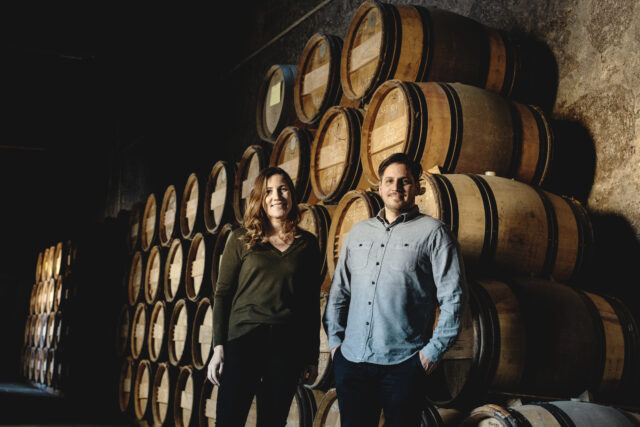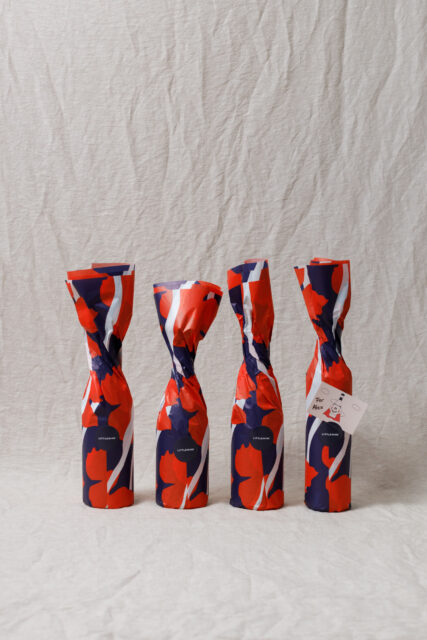Life under lockdown prompts wine club revival
The impact of Covid-19 and subsequent lockdowns have seen a number of changes to the ways we consume goods and services, not least a shift toward wine e-commerce and a rise in digital subscription services.

In the UK, a survey from Barclays Bank showed that during April 2020 household spend on digital content and subscriptions increased by 50.2%, which includes digital content platforms and home delivery services. The subscription economy is booming.
Savvy wine merchants have been quick to take note, and a fresh wave of online retailers are launching innovative new wine clubs that regularly deliver hand-picked wines to your door.
Last month Majestic appointed Mark Capon to the newly created role of director of subscriptions as the nationwide retailer looks to further develop its presence in this area, describing it as a “future growth opportunity”.
In the US, online wine retailer Wine.com made US$329m in revenue last year, up 119% on 2019, with revenue generated by its StewardShip subscription service increasing by 149% to $189m. It also launched a new wine club service in October 2020, which has already recorded 25,817 wine sales, it reported in January.
Meanwhile Churchill’s launched its own Port.Club – the first of its kind among the Port houses – delivering members 12 Ports over 12 months for an annual membership of £240 (around £20 a bottle), which includes a mix of everyday Ports, bespoke blends, hard-to-find labels and exclusive bottles.
“One of the fun elements of why consumers are getting into clubs because they are seeing things that they haven’t seen before,” says Ben Himowitz, who co-founded the Port.Club by Churchills with his wife, Zoe Graham, daughter of Churchill’s founder, Johnny Graham. “People are also looking for things to focus on and get into and taking this opportunity to learn new things and develop new skills and turn this time into a positive, and wine is one of the most fun things you can tuck into as a learning experience. People want to eat and drink well, particularly if they are at home, so it’s a perfect storm.”
This new wave of wine clubs is not just about simply buying wine, but experiencing everything that goes along with it, be it the food, travel, culture or agriculture behind every bottle. Himowitz is hopeful that members will be able to benefit from hospitality experiences in Porto once life returns to some sort of normal, but for now virtual tastings make a great substitute.
“Right now the idea of being able to virtually taste and create content that allows people to connect with a sense of place is so important. One of the things I want from Port Club is for it to feel really human despite being digital first and I think that’s one of the secret sauces of clubs that are most successful – having a real sense of connection to the people behind it.”
Newly founded online wine retailer The Sourcing Table launched its Wine Club last year, offering quarterly curated cases selected by experts including Rajat Parr and Paz Levinson, alongside exclusive content and live Q&As with winemakers.

Similarly LittleWine, an online bottle shop and content platform, was founded in April 2020 by Daniela Pillhofer and Christina Rasmussen born out of a wish to “highlight the work and philosophies of the people behind the bottle: the growers and winemakers”.
Partner Content
In October, the pair launched their own Wine Club (from £50 a month), catering specifically to demand for organic and biodynamic wines and combining it with access to the site’s original content, which includes winemaker interviews and articles.
“It’s still early days for us but I think people like to discover wines from companies with whom they share values,” says Rasmussen.
“In our case that means people who are looking for organic, artisan wines that aren’t widely available elsewhere. They are special bottles that aren’t necessarily everyday wines, but rather weekend treats. I think signing up to any subscription is a leap of faith, so we try to ensure the selection varies a lot in terms of styles and regions, so that there’s something for everyone.”
BREAKING DOWN PORT’S ‘STUFFY’ IMAGE
For Churchill’s, its Port.Club is also about raising the profile and perception of Port beyond its ‘stuffy image’, which the category has long been trying to shed
“If you want to drive innovation we think it needs to come at a more holistic level to really connect with a new generation of drinkers and that means also breaking down traditions of how we get port to people,” explains Himowitz. “The distribution channels are quite engrained in that traditional mode of where people buy it and where it appears in peoples lives. So the idea was to create a Port.Club that was digital first that stood separate from Churchills as a sponsored brand, because we want it to be flexible and have a spirit of fun that is different from a lot of the very good legacies of the category.”
The Port.Club currently only offers Churchill’s Port, but Himowitz isn’t ruling out opening the service to other small batch and independent producers in the future, depending on demand and “what its members want the club to be”.
“With a club because you are working directly with consumers it allows you to more directly craft your offer to what they want and to do that quite quickly without having to think about the impact on several links in your chain, which is what I think what traditionally slows down drinks innovation,” explains Himowitz.
“Obviously retaining people is going to be a challenge and I think continued innovation will be really important – finding ways to add value and to earn a place in people’s lives. But as a business it’s a blank canvas. We can do anything, and that’s exciting.”




